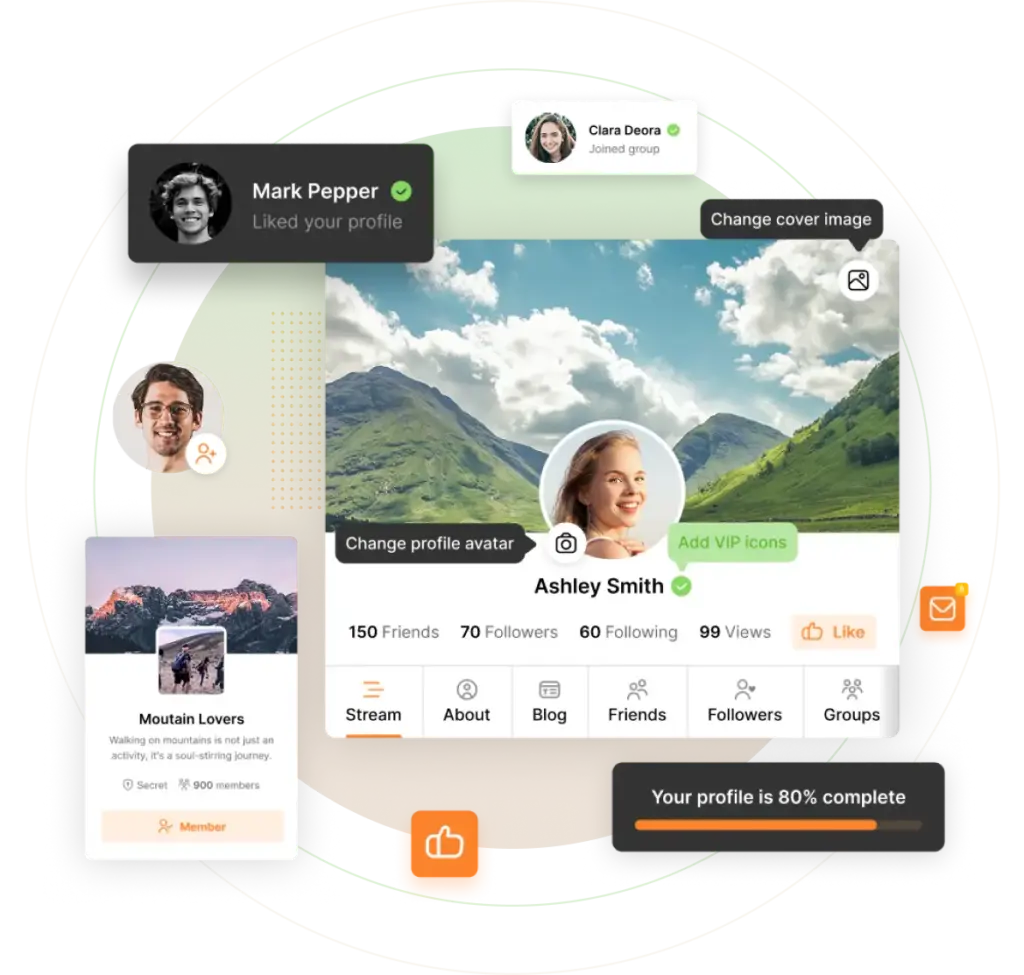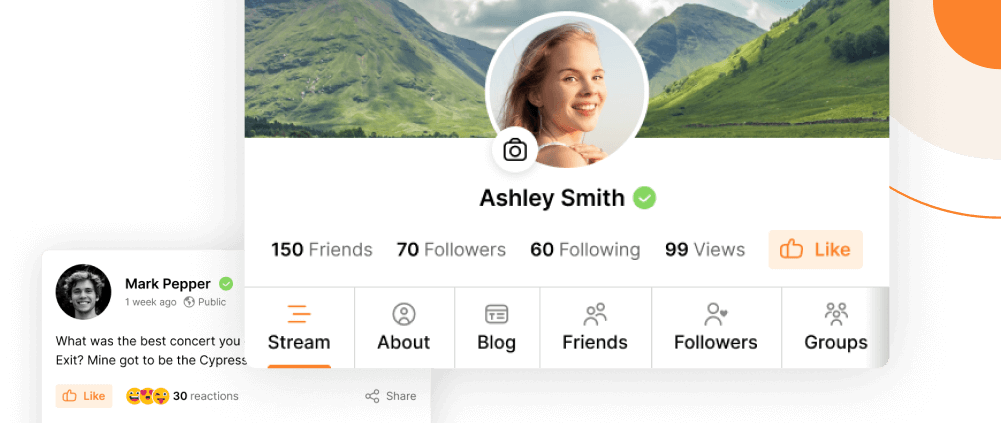In 2010, Facebook completely revamped their Groups product; the idea was to create smaller communities within Facebook where people could discuss a shared interest, talk with their family members, buy and sell goods within their local community, connect with any of the smaller microcosms within the macrocosm of Facebook.
Groups can be open (anyone can take part in the conversation), closed (anyone can request to join and see the group’s members and description, but won’t see content until they’re approved) or secret (you have to be invited by an existing member to even know the group exists). You can opt-in to get a notification every time someone posts in the group, see all posts to the group in your newsfeed, or only see content when you visit the group’s page.
Given how much Facebook filters newsfeed content from Pages, it’s no wonder businesses are turning to Groups to interact with their customers. Groups also allow you much more control over who can see and interact with your content, meaning businesses have less trolls and spammers to deal with. Posts are ordered by last interaction (a new comment will send a post to the top of the group’s feed), rather than by popularity; and you can guarantee that, unless they opt out, your members will see everything you post – without you having to pay exorbitant advertising/boosting fees. You can control content by creating your own list of group rules, and remove any members who don’t abide by them.
When people ask what’s the point of creating your own social network, they only need to look to Facebook Groups – the popularity of this service shows that there’s a demand for smaller online communities. These groups *are* their own social networks, we just don’t identify them as such because they come under the Facebook umbrella.
Facebook Groups are still subject to Facebook’s rules and regulations; you might be able to ensure everyone you’re connected with will see your posts, but Facebook still has the right to collect data about you and your group members, and they can remove your group without notice. If you create your own social network, on your own website, you get all the benefits of a Facebook Group without any of the drawbacks. You’re also able to connect with people who might not want to join the macrocosm of Facebook for personal reasons, or who might not want business activities connected with a personal account.




Reactions & comments
Comments